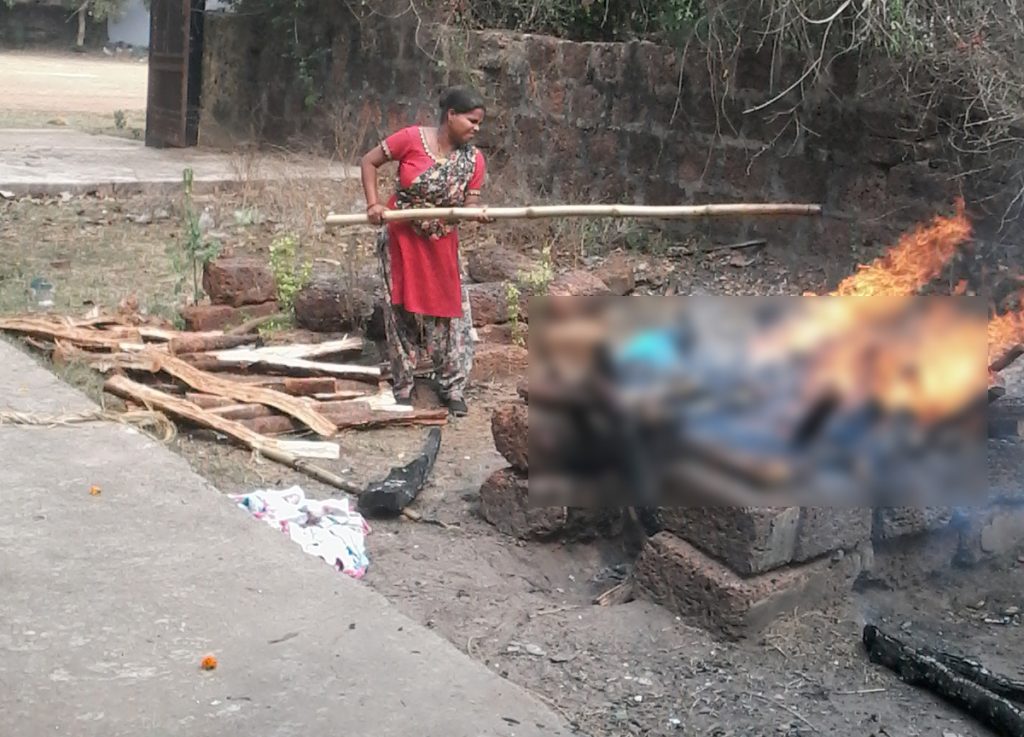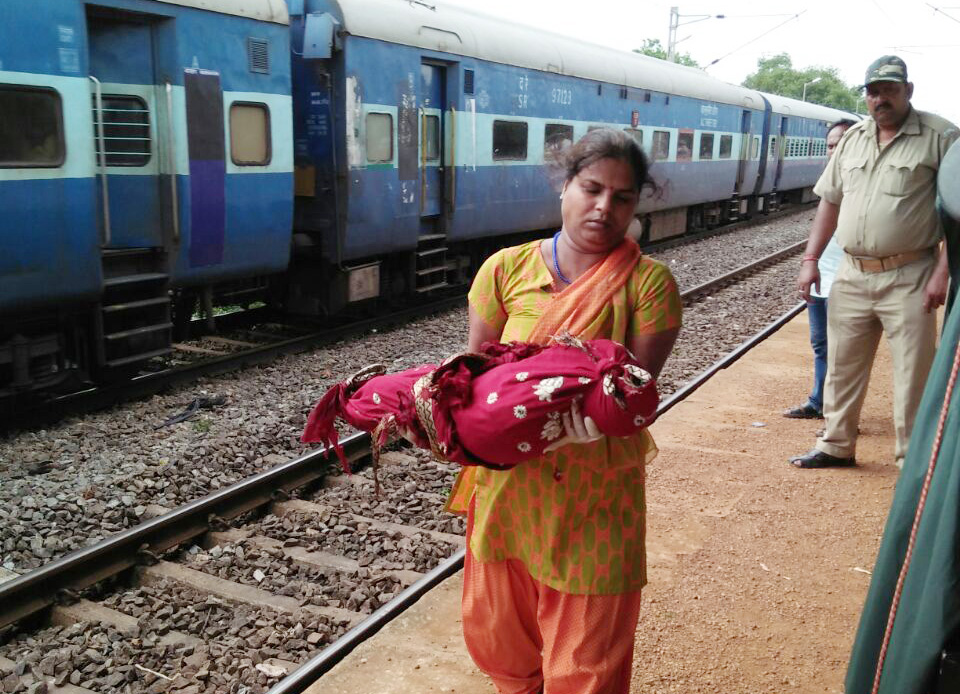It is believed that there are certain areas of work that are unsuitable for women. However, Bhubaneswar-based Riturani Sasmal has opted to do a job that hardly any woman would be willing to undertake. Riturani picks up unclaimed and unidentified bodies from railway tracks and cremates them. So far, she has collected around 5,000 bodies from railway tracks and cremated a thousand of them.
There is a heart-wrenching tale behind how Riturani took up this difficult work. Following unbearable domestic violence, she decided to end her life by jumping before a moving train. However, before she could do that, a man called Pradip Kumar Prusty rescued her and gave her life a new meaning altogether. “My husband, a peon in the Punjab National Bank, was a drunkard and a womaniser. He would assault me often. Initially, I tolerated his nuisance for the sake of my children. But when it became a daily feature, I decided to end my life out of despair. Without informing anyone, I went to commit suicide when Pradip sir spotted me and saved my life.”

After being rescued by Pradip, Riturani left her husband’s house. She started working as a housemaid to earn a living for herself and her two daughters. However, she found it tough to offer quality education to her children with her meagre income. And then her life took another turn. “Finding blood stains in Pradip Sir’s ambulance on one occasion, I asked him about the reason,” Riturani says. “He told me that he picks up bodies from railway tracks after being informed by the police and cremates them. Without giving it a second thought, I decided to join the Pradip Seva Trust started by Pradip sir.”
Recalling her first experience of collecting a beheaded body, she says, “When I revealed my desire to join his organisation, Pradip sir said it would not be easy for a woman to visit such places and collect beheaded and decomposed bodies. He, however, agreed to take me as his assistant after I persisted. I went to Lingaraj railway station where a youth had committed suicide. While Pradip sir was busy discussing things with the police, I started my work. I collected the stinking decomposed body and wrapped it in a polythene sheet. Seeing my dedicated work, Pradip sir agreed to let me work for his organisation. However, this did not go down well with the families where I worked as a maid. I lost my jobs as they could not accept a woman doing this ‘terrible’ job. But I was not prepared to give up. To supplement my earning, I started working as a traffic volunteer in the evening hours. At the same time, impressed by my social service, another good Samaritan Chaturbhuj Panigrahi gave me a sewingmachine so that I could earn some extra income. My daughters and I are happy now. However, I hardly get anything from this profession. Sometimes, policemen hand over a hundred rupee note after receiving the body for post-mortem. ”
She continues, “I belong to Balasore but shifted to Bhubaneswar after my father got a government job here. While pursuing my intermediate, I had to pass through the post-mortem section of a government hospital to reach college. So, I got used to the unpleasant sight of bodies.”
Sharing one distressing memory, she says, “A 20-year-old school peon committed suicide by jumping before a moving train at Lingaraj station. On being informed, I reached the spot to collect his body. I came to know from locals that the parents of a girl had accused the youth of raping a five-year-old following which he took this extreme step. When I reached his village, his sister who was pregnant started crying inconsolably. She was not ready to accept the truth and she did not let her brother’s body be cremated. I could not control my tears.”
She adds: “In another incident, a man died while alighting from a moving train at Bhubaneswar railway station. He was from Jatni and Telugu community. When I reached his village, some women protested my presence there. After the police explained my role, the elderly women came one by one and blessed me for doing this yeoman service.”
The most memorable experience for Riturani during her five-year stint in the field was an incident that took place at Swargadwar. “We had gone to cremate a body. But people there did not allow me to do the job. In the end, I managed to convince them.”
Riturani’s parents also distanced themselves from her because of her job. “Two years ago, I lost my mother. When I came to know about her death, I decided to pay obeisance to the departed soul. On my way to Balasore, my hometown, my father phoned me and said: ‘If you come, I will commit suicide.’ Finding no other go, I returned to Bhubaneswar.”
Riturani has been felicitated by Trishakti Mahila Samiti, transgender activist Meera Parida, Byomkesh Tripathy, Ambika Foundation and Anubhav Mohanty. She cherishes the moment when she got the Change Maker award.
Riturani, who attributes her success to her mentor, has a message for society. “It’s wrong on the part of women to think that they are inferior to men. Besides, they should change their notion that a woman cannot live a quality life without the support of a man. I raised my voice after 15 years of marriage. So, it’s never too late for women to raise their voice against injustice meted out to them. Everyone has the right to a dignified life.”
RASHMI REKHA DAS, OP
